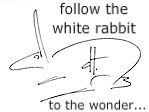"“Long sentences, one soon learns—and I mean not fake long sentences, wherein comas, semicolons, and colons could be changed into periods with no loss of emotional power or intellectual coherence, but real sentences—can be of many kinds, each with its own unique effects. The sentence may be propelled by some driving, hysterical emotion, like William Faulkner’s long sentence in the occasionally included introduction to The Sound and the Fury, in which the town librarian finds Caddy's picture in a magazine, closes the library, and rushes with the picture, her wits flying and her heart wildly pounding, to Jason's store; or the sentence may be kept soft—that is, held back from the relief of a final close, a full stop for breath, in other words, a period—by some neurotic sense of hesitation in the character whose troubled mental processes the sentence is designed to reflect—some intelligent middle-aged housewife, for example, who has read about women’s liberation in her magazines and feels an increasingly anxious inclination, hedged in by doubts and on-the-other-hands, to take a nightschool course—one in flower-arranging, or ceramics, or self awareness—perhaps telling her domineering mother and husband what she’s doing and then again perhaps not—though money will be a problem if she takes the course secretly: She has only her household and grocery allowance—and there are always the children, though Mark (let us call him) might possibly be talked into staying after school Thursday nights to play basketball, and Daniel, on the other hand…but would Daniel even miss her if she went out, in fact?—glued every night to the TV in his room, smoking (if that’s what the smell is) pot?—but it would be risky, no doubt of it; if they found her out—Harold and her mother—there would be scenes, tiresome dramas; better to find some more foolproof plan…or the sentence many be kept going by the complexity of its thought, or by the ornateness of its imagery, or by the “sheer plod” of the drudge it illustrates, or by some other cause, or motor, before at last it quits.
Short sentences give other effects. Also sentence fragments. They can be trenchant, punchy. They can suggest weariness. They can increase the drabness of a drab scene. Used for an unworthy reason, as here, they can be boring.
Between these extremes, the endless sentence and the very short sentence, lies a world of variation, a world every writer must eventually explore."
from The Art of Fiction: Notes on Craft for Young Writers, p. 148-149
this site has moved...
-
come and follow the whimsy at it's new home @
*http://webofwhimsy.postach.io/ *
11 years ago























1 comment:
I wonder if long sentences are some sort of attempt at capture - makes me think of my brother's wrapping of Christmas presents with many, many strips of tape.
Post a Comment